Welcome to the 2024 Betters
For the second year, days before the Oscars, we look back on the year in movies and present our own, Better awards.
Elliott: Welcome to the second annual Better Awards! The Betters are named after our site, but in our heavily biased opinion, we also think they’re an improvement over the Oscars. Remember in 2019 when the Academy failed to nominate Lupita Nyong’o for her bone-chilling, masterful turn in Us, but decided to nominate Charlize Theron for portraying Megyn Kelly in the same year? Yeah, that’s the kind of stuff we don’t put up with. Here at the Betters, we don’t discriminate against genre or films that were released in the first half of the year.
Joining us once again in this venture is our #1 movie pal, Michael Brooks! The committee of Michael, Shawn, and myself put together our picks for the best performances, director, needle drops, and films of 2024. Let’s kick things off with a a family-friendly medley by Ricky Stanicky.
Best Supporting Actor
Michael: Wonder how many dorks over at the Academy of Motion Picture Arts and Sciences took time out of their “busy” schedules to watch Ricky Stanicky? My gut tells me almost none considering it has zero nominations over there but no worries that’s what we’re here for. Although I certainly wouldn’t blame anyone for skipping out on the latest from Peter Farrelly, an absolute snoozefest save for the moments that our titular Ricky Stanicky, played by John Cena, graces the screen. I’m actually working on an all-Stanicky cut of the film right now, less Zac Efron and company and more Rock Hard Rod and his jizz jams. “Splooooooge out my penis! Sploooooooge on my tummy!” Ahh, the magic of cinema.
Elliott: My favorite costume choice of 2024 was Takahashi’s (Ryuji Kosaka) puffy orange Patagonia jacket. It tells us so much about this man. He has the expensive outdoor gear, but struggles to chop a single piece of wood. He’s well-intentioned with a good heart, but totally out of touch and a little misguided in his attempts to connect with the salt of the earth local residents. In a film full of non-professional actors, Kosaka gifts the story with a crucial puppy dog obliviousness. He’s a man who wants to get it, but it’s too late. He never will. The damage is done.
You ever meet somebody and immediately think they’re annoying but then that person ends up being one of your most cherished people in your life? Well, I can’t say that I have, and I don’t know how common that is, but it happens in the wonderful Indian drama Meiyazhagan. Karthi plays a man whose name we don’t learn until the very end because Arul, the film’s lead, pretends to remember him to avoid hurting his feelings. The problem is he figured he’d have one interaction with him and move on. But Karthi’s character won’t leave him alone, and they’re glued together for an entire evening and night. Karthi makes a gradual shift from comedic nuisance to an arresting and admirable man through revealing monologues and stories. I went from wanting him to leave our main character alone, to feeling like I would die for this man when the film concluded. Would you die for our next nominee Shawn?
Shawn: Well, considering he might leave me to fend off a pair of Russian goons the second our marriage gets too real…it’s a coin flip. So about Anora: liked it, didn’t love it, like I have with other Sean Baker flicks (stream Red Rocket)…but the euphoric first 40 or so minutes of the film which heavily involve Mark Eydelshteyn, those I loved. As Vanya, Eydelshteyn has unreal live-wire energy, living the most glamorous hot couch lifestyle imaginable, with considerable charm behind that scraggly body. Even if you don’t buy Anora thinking this guy could be sincere, you buy his unlikely appeal wholeheartedly, and by my count, the movie is far lesser when he isn’t a part of it.
And then from perhaps the only other zeitgeisty film featured on the Betters slate, Josh O’Connor’s turn in the adrenaline-maxxing Challengers. It’s a more impressive and less CGI-augmented performance through the ages than Tom Hanks in Here (which don’t get me wrong, some of us very much enjoyed). The gawky boyish Patrick Zweig; the churro-devouring Patrick Zweig; the cutthroat, sorta washed class chameleon Patrick Zweig — all the same dude. On second watch, his sweet, affectionate (and evidently gif-able) gestures with Art shined brightest.
Supporting Actor Nominees:
John Cena (Ricky Stanicky)
Ryuji Kosaka (Evil Does Not Exist)
Karthi (Meiyazhagan)
Mark Eydelshteyn (Anora)
Josh O’Connor (Challengers)
Supporting Actor Winner: Josh O’Connor - Challengers
Best Supporting Actress
Michael: As a former bodybuilder, Katy O’Brian brings a physicality and authenticity to her character Jackie in Love Lies Bleeding that makes all the difference. The latest from Rose Glass is a sweat drenched neo-noir that gleefully dips into the surreal, a genre film through and through that subverts expectations at every turn, but what sticks out to me the most is just how great O’Brian is throughout. If Kristen Stewart as Lou gives us as the audience an anchor to hold onto, it is ultimately Jackie who allows the film to reach uncanny conclusions without them ever feeling unearned, a truly exciting breakout role from an actress who I hope to see a lot more of in the future.
Elliott: Aubrey Plaza’s character’s name in Megalopolis is Wow Platinum. Wow Platinum has chutzpah. Wow Platinum is a force. Wow Platinum takes what she wants and seizes it in the grasp of her money-hungry hands. Plaza’s cartoonish sexuality and starved-for-power desperation fit the boundless circus act that is Megalopolis (compliment) like a glove. She’s a femme fatale that transcends time. She is Wow Platinum.
A performance that couldn’t be more different from Wow Platinum, but equally as bracing, is Sadie Lapointe in Eureka. Lapointe plays a native basketball coach that, despite her young age, moves and speaks with a weariness of a full life lived with too many tragedies witnessed. When she reunites with her grandfather for a life (and species) changing decision, it’s like time itself freezes. This is the last kind of delicate and subtle performance the Academy would never nominate in a million years. That’s why we’re The Betters.
Shawn: Couple of foils in this category I’d like to zoom in on: first, Michele Austin’s turn as Chantelle in Hard Truths. Although Marianne Jean-Baptiste’s Pansy has a way of swallowing the energy from every room she enters, there’s always the family members who have to surgically manage this type of personality — show them undying love and forgiveness, no matter how little is reciprocated, while pushing back just enough to not alienate them into even more destructive behaviors. Austin gracefully threads that needle, as Jean-Baptiste’s sister, in a far more subtle but still impressive role.
Laurie Babin as Clémentine in Red Rooms works as a similar counterweight to the inscrutable depravity of Juliette Gariépy’s Kelly-Anne. Both of these women are obsessed with the same central serial killer case, Kelly-Anne’s just far closer to the source. Babin’s heavy eyes convey that righteous curiosity and eagerness for justice — rarely do you see a mostly well-meaning, naive person who’s been duped by the true crime industrial complex portrayed so well. Her face is the audience’s mirror, during the film’s horrifying centerpiece, as she processes the terror of what’s off-screen, and the agony of falling too far down the rabbit hole.
Supporting Actress Nominees:
Katy O’Brian (Love Lies Bleeding)
Aubrey Plaza (Megalopolis)
Sadie Lapointe (Eureka)
Michele Austin (Hard Truths)
Laurie Babin (Red Rooms)
Supporting Actress Winner: Laurie Babin (Red Rooms)
Best Actor
Elliott: Matt Farley plays one of the most endearing characters in cinema history in Local Legends — himself. But then 11 years later we got a sequel, and the business side of Matt Farley starts killing everybody that gets in the way of the artist side. Oh no! I gotta say…(iykyk) it’s a career best turn from Farley, who has embraced more adventurous roles with the last few Motern Media releases. Farley’s heel turn was so believable that when I spoke to him on the phone (watch his masterpiece Local Legends, he mentions his phone number throughout and you can call him), he told me that people have been asking him if he’s doing okay. There’s been legitimate concern for his well being because the film and performance just felt That Real. That’s impressive acting folks!
Another master at portraying dudes on the verge of losing their minds at all times is Conner O’Malley. O’Malley had a banner year by starring and co-directing maybe the year’s funniest comedy in Rap World, starring in the Cronenbergesque short film Coreys, and his best role — Stand Up Solutions — a stand-up special where he plays Richard Eagleton who gives a presentation about an AI comedy startup. O’Malley is known for his verbal explosions and manic expressions, but he brings rare heart to characters that are comically pathetic. He showed up in I Saw The TV Glow too, and if the world knows what’s good for it, we’ll see him in a Safdie Brothers (oh wait they broke up, uh Josh Safdie I guess) or a Radu Jude film down the line.
Shawn: Speaking of another performance with multiple personalities: thank god the Betters aren’t split into Comedy/Drama categories, because George MacKay would almost certainly be a lock to appear in both genres for his triptych of roles in The Beast. Across lifetimes, Louis/Louis Lewanski is sensitive, bone-chilling, uproarious, and at last, a blank unfeeling husk. There’s perhaps no greater high-wire act last year, than Bonello and MacKay’s squeezing some truly hilarious line deliveries out of an Elliot Rodger homage. In the best of 2024’s Lynch indebted films, MacKay proves up to the tonal juggling act and keeps pace with his co-lead.
As a major Clint Eastwood devotee, it should come as no surprise that I’d wind up loving Juror #2, but I certainly didn’t expect Nicholas Hoult to deliver what is maybe my favorite performance of the year. Character and actor are both presented with the impossible task: conveying the feeling of your mind racing a million miles a minute to cover the stomach-churning truth, while trying your hardest to present as a perfectly normal dad-to-be. Cliched as it is to say, but the work he pulls off with his eyes alone is beyond masterful, culminating in the garage scene when he clues Zoey Deutch in on the big secret. The entire construction of Juror #2 is proof positive that knowing spoilers doesn’t really matter if a film’s execution and performances find fascinating ways to wrestle with truth and consequences, among its director’s other pet themes.
Michael: Feels like I’m taking the baton from Shawn in more ways than one here, who wrote about Dave Bautista in Knock at the Cabin for last year’s Betters (which means it’s only right for Elliott to ride for a Shyamalan in some capacity at next year’s awards… just wanted to make sure we got that one on record.) Shyamalan’s mediation on fatherhood, equal parts Brian De Palma and The Eras Tour, might not have been for everybody but there seems to be no disagreement on Josh Hartnett’s (don’t call it a) comeback role as Cooper in Trap. He’s funny, menacing, sweet, always on alert—basically everything that a girl dad is supposed to be. Does it get much better than this? I don’t think so.
Best Actor Nominees:
Matt Farley (Local Legends: Bloodbath)
Conner O’Malley (Rap Word/Coreys/Stand Up Solutions)
Josh Hartnett (Trap)
Nicholas Hoult (Juror #2)
George MacKay (The Beast)
Best Actor Winner: Josh Hartnett (Trap)
Best Actress
Elliott: What we have here is possibly the most loaded acting category in the Betters’ short history. My favorite performance of the decade is in this group (you guys know the one), but before we get to her, who jumped out for you?
Shawn: This category is beyond punishing to narrow: most of my favorite films this year are fronted by a different imposing lead actress performance — some unbelievably brash and obnoxious, others filling out the most unpleasant onscreen characters of the year, all remarkably distinct and accomplished.
Marianne Jean-Baptiste, who’s gotten her flowers from everyone but the Oscars for Pansy in Mike Leigh’s Hard Truths, really is that good. A total inversion of the last Leigh character she played back in Secrets and Lies, Pansy’s a geyser of vitriol and cynicism, assuming the worst intentions from everyone who crosses paths with her, whether it’s her own immediate family members or the grocery store cashier. This bitterness papering over her grief and pain is far too familiar — we’ve all met someone sort of like this, if not pitched up to 11 — but she is funny, with her syncopated delivery, to her handling of the I Think You Should Leave-y scenarios that spring from her rock bottom tolerance for basic social mores.
Meanwhile Catherine Breillat’s salacious, gripping Last Summer presents a character who’s less outwardly toxic in her daily life as a lawyer who advocates for the safety of minors, but devolves into the very thing her profession aims to protect against. If you know one thing about Last Summer, it’s likely that Léa Drucker’s Anne pursues a love affair with her husband’s troubled 17-year-old son from a previous marriage. That this is at least mildly breezy, for a time, is a testament to Drucker’s handle on the material before it becomes a more difficult watch. As you sense Anne’s gears shift from taking an already horrific abuse of power into further unforgivable terrain by the third act, the performance finds new contours and becomes almost frightening in its conviction. Speaking of frightening…
Michael: How about Juliette Gariépy though? What an absolutely staggering performance in Red Rooms as Kelly-Anne, one that I’ve not been able to shake since first watching. Part of the mystery of Red Rooms is trying to figure out why someone like Kelly-Anne, a beautiful model with a fancy apartment and seemingly awesome life, would become so consumed with a high-profile serial killer trial like this in the first place. Even as the story slowly begins to unfold we’re still only met with Gariépy’s cold blank stares, devoid of any and all emotions, save for a couple of moments I wouldn’t dare spoil. In a movie all about our obsession with true crime, voyeurism in the age of the dark web, and the ways in which the internet has desensitized us to pretty much everything, Gariépy gives a bold and chilling performance that easily stacks up against the year’s best.
Elliott: Andrew Tate, if you’re reading this, the performance that most resembles you in 2024 is nominated for Best Actress for our site’s awards :) Of course, the character of Bobita, a TikTok, heavily digitally filtered toxic male influencer inspired by Tate (you can watch Bobita here), is only part of what makes Ilinca Manolache’s performance so special. Caught in a thankless, overbusy and underpaid job by a company that’s exploiting injured workers, Angela (Manolache) gives grounding empathy to those who have been hurt, providing humanity to a film that's mostly biting and hilarious. Watch a clip of Bobita and it may seem like lunacy, but Bobita is actually the escape from the madness that is the humdrum, tedious work Angela is trapped in. With Bobita in Do Not Expect and George MacKay in The Beast, portrayals of toxic masculinity with characters filming themselves on iPhones had a real moment in 2024.
Then there’s this other performance where an actress also (sort of) plays multiple characters — Léa Seydoux in The Beast. The task of putting into words what this performance did to me feels as tall as Victor Wembanyama. All the cliches like “tour-de-force” apply, and a performance of this magnitude merits an entire piece by itself. But I’ll just note 2 moments that I’ve thought about nearly every day since I watched the film 10 months ago.
A dance. Watch it here.
A scream. When I think of everything that terrifies me about the future — AI, its use in work with capitalism to thwart human emotion and connection in order to achieve inhuman short-term gain and profit and efficiency, there is a moment where Léa Seydoux screams in horror and heartbreak that captures this towering fear, and it had me literally sideways in the theater. I was pummeled, felt physical strikes in my chest as I witnessed, and recognized, the worst of my fears coming true for somebody. I walked around for 2 hours in aimless thought after the movie. Seydoux, and this moment of my heart feeling ripped from my chest, is why.
Best Actress Nominees:
Marianne Jean-Baptiste (Hard Truths)
Léa Drucker (Last Summer)
Juliette Gariépy (Red Rooms)
Ilinca Manolache (Do Not Expect Too Much from the End of the World)
Léa Seydoux (The Beast)
Best Actress Winner: Léa Seydoux (The Beast)
Best Director
Michael: Much like the online poker playing protagonist of his movie, director Pascal Plante knows not to reveal his hand too early. Although not a horror film per se, Red Rooms is without a doubt one of the most shocking and viscerally terrifying things I’ve seen all year. There is something to be said about restraint and how unnerving a watch Red Rooms is without ever showing you any of the terrible acts of violence described in the movie, Plante’s ability to crawl under your skin is truly second to none. The coldness of the film is only magnified by his masterful direction—slow moving shots of a sterile courtroom (including the amazing scene that opens the film), the light of the computer reflecting off of Kelly-Anne’s face, and those lonely Montreal streets. With shades of Fincher all over this thing, Red Rooms is about as sleek as they come, ushering in Plante as a filmmaker to watch.
Shawn: What a year for these modern directors leveling up, who actually engage with modernity and all its dehumanizing warts. Radu Jude’s Do Not Expect Too Much From the End of the World belly flops right into it, with those long, static profile shots of Angela’s daily drives, punctuated by the crudest gags of the year while she films videos in Bobitaface. The nature of her workday plays like the endurance-testing limits of slow cinema smuggling their way into the funniest movie of the year, but Jude has more tricks up his sleeve in how this builds backwards and outwards, weaving in footage from 1981’s Hungarian film about a taxi driver from a different era, Angela merge mai departe. He makes this juggle of tone and form look so easy, right up to the film’s ginormous final shot of the central PSA.
She’d have it no other way, but Catherine Breillat almost certainly carries the premise with the toughest sell in the category. The step-child love affair of Last Summer isn’t far removed from Rohmerian taboo luxury, but you can absolutely tell this is a Danish adaptation from the propulsion and austerity of its final act. Her staging and camera placement in each sexual encounter leading up to Anne’s collapsing house of cards capture the intimacy and dread alike, and Breillat capably snaps into the film’s airtight narrative pace. Not the only film in this bunch with such breakneck, disturbing implications.
Elliott: Modern master Ryusuke Hamaguchi gave us his most chilling feature yet in Evil Does Not Exist. The Japanese director has been a student of Even Better favorite Kiyoshi Kurosawa, and that influence has never been more present in Evil’s use of exterior space to create dramatic tension between characters and their environment. It’s all credit to Hamaguchi that when things take an unexpected sudden turn, the moment isn’t just earned, but feels inevitable. It’s also credit to Hamaguchi’s staging, framing, and pacing that the most thrilling scene of the year may be a community meeting about glamping.
We travel to 1910s France, 2014 Los Angeles. and the year 2044 in The Beast. Bertrand Bonello tracks characters through these varying eras and spaces, as they, and the film itself, build to an implosion that catapults towards a tragic loss of self and reality. Bonello’s control of tone is beyond compare. We experience the film like a traditional gripping story as we attach to the narrative, but also viscerally, as the frame and the characters malfunction in a way that feels too close to our increasingly surreal digital hellscape. The Beast is a crowning achievement by one of the great directors of this new millennium. There are so few films that feel this alive, and feel this close to what it’s like to be, or struggle to be, alive today.
Best Director Nominees:
Ryusuke Hamaguchi (Evil Does Not Exist)
Bertrand Bonello (The Beast)
Pascal Plante (Red Rooms)
Radu Jude (Do Not Expect Too Much from the End of the World)
Catherine Breillat (Last Summer)
Best Director Winner: Bertrand Bonello (The Beast)
Before delving into the big prize, a quick intermission for our favorite movie music of the year:
Best Film Scores
Challengers - Trent Reznor & Atticus Ross
Evil Does Not Exist - Eiko Ishibashi
The Beast - Bertrand Bonello
Queer - Trent Reznor & Atticus Ross
Hard Truths - Gary Yershon
Best Needle Drops
“Dirty Boots” by Sonic Youth in Last Summer
“Seizure” by OG Maco & Jer-Z in The Beast
“Starburned & Sunkissed” by Caroline Polachek in I Saw The TV Glow
“Free Fallin’” by John Mayer in Rap World
Best Picture
Here at the Betters, 2024 stands out as one of the strongest recent years for cinema (if you choose to almost totally ignore the Hollywood releases from last year, that is). More than half of our favorite films this year hail from outside the states, just two of which come from a major studio (if you can count one of them, unceremoniously dumped into a few dozen theaters and Max). But at this stage of the program, the Betters bettors at home perusing DraftKings might notice momentum coalescing around one particular movie, and they’d be right…
Best Picture Nominees:
The Beast
Chime
Do Not Expect Too Much At the End of the World
Evil Does Not Exist
Juror #2
Last Summer
Local Legends: Bloodbath
Megalopolis
Rap World
Red Rooms
Best Picture Winner: The Beast
The Beast forever. See y’all next year! If you want to read previous Betters awards, you read the 2023 Betters here, and the 2014 Betters here.
See Elliott’s Top 30 of 2024 here
See Michael’s Top 16 of 2024 here
See Shawn’s Top 34 (of 34 watched from) 2024 here




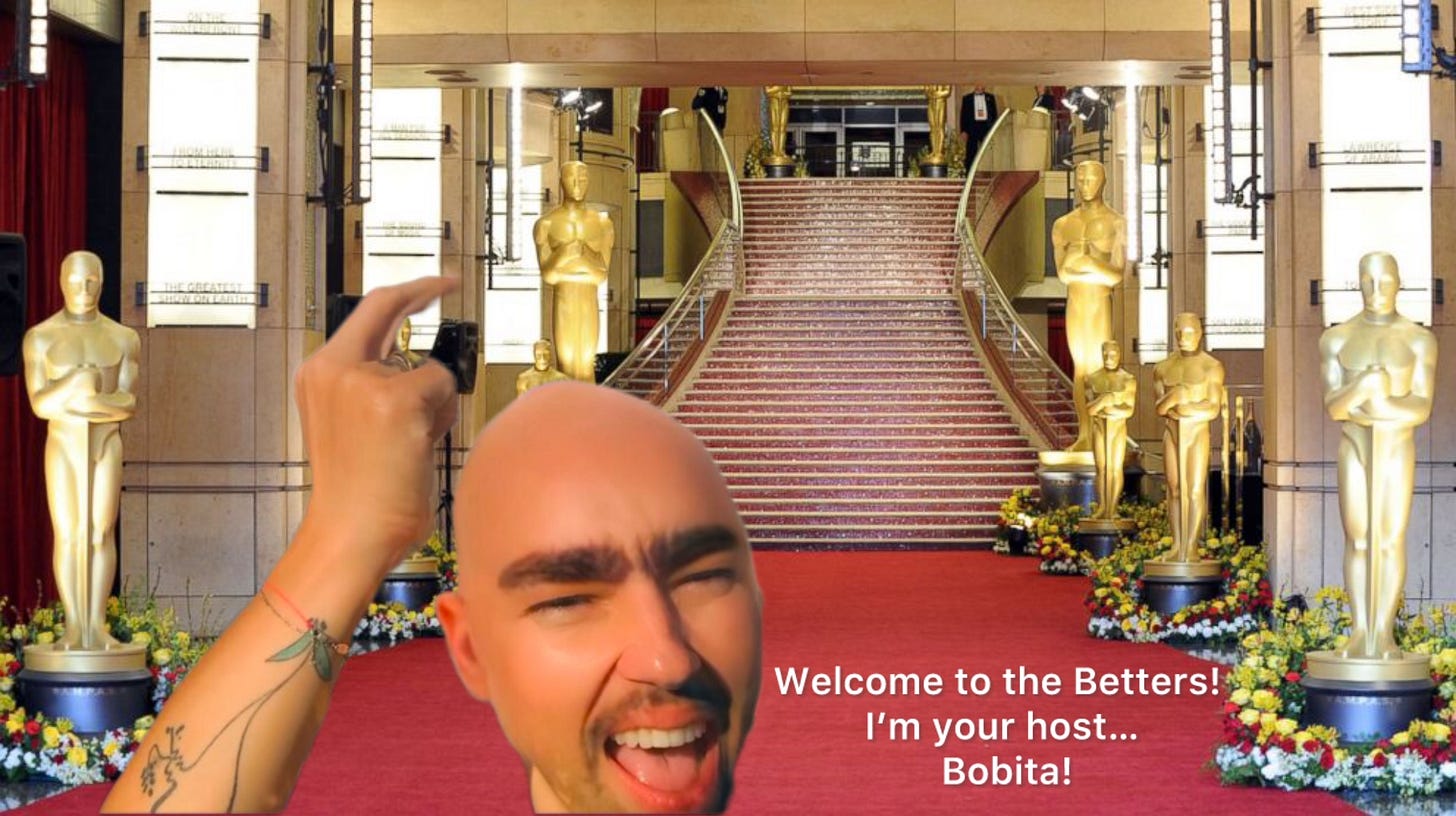
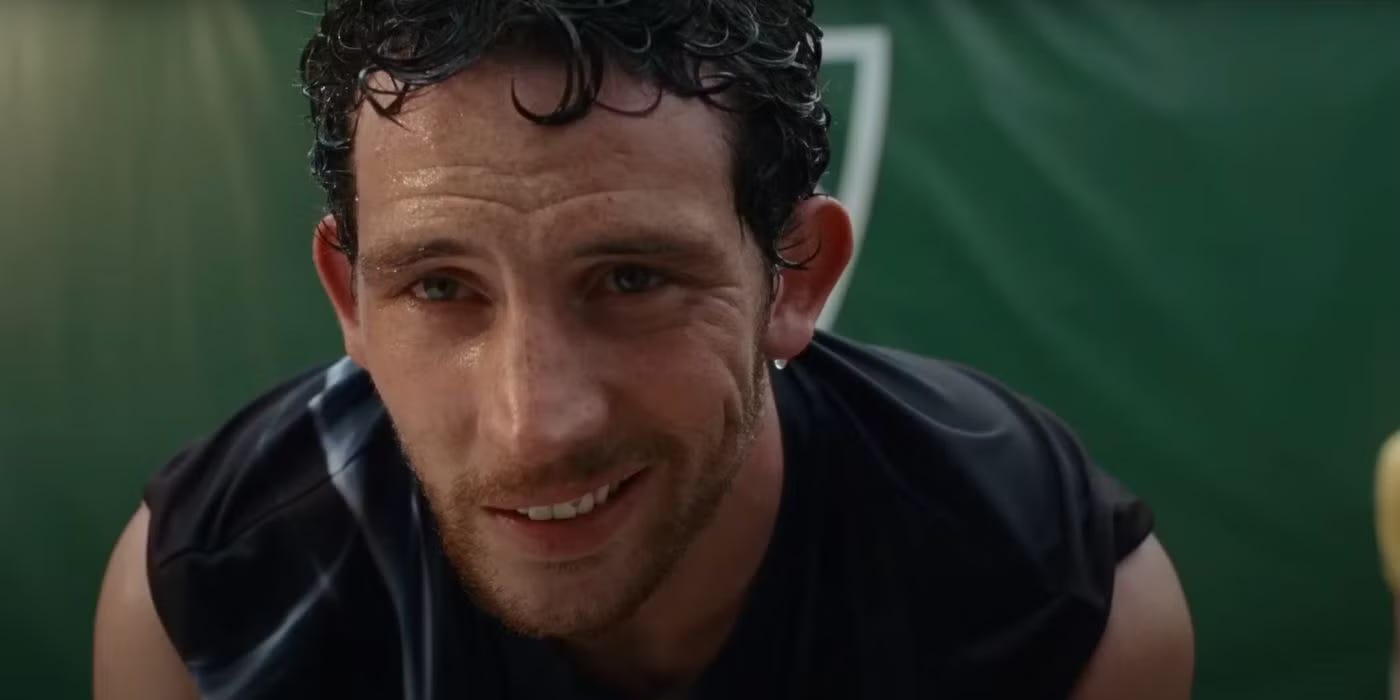
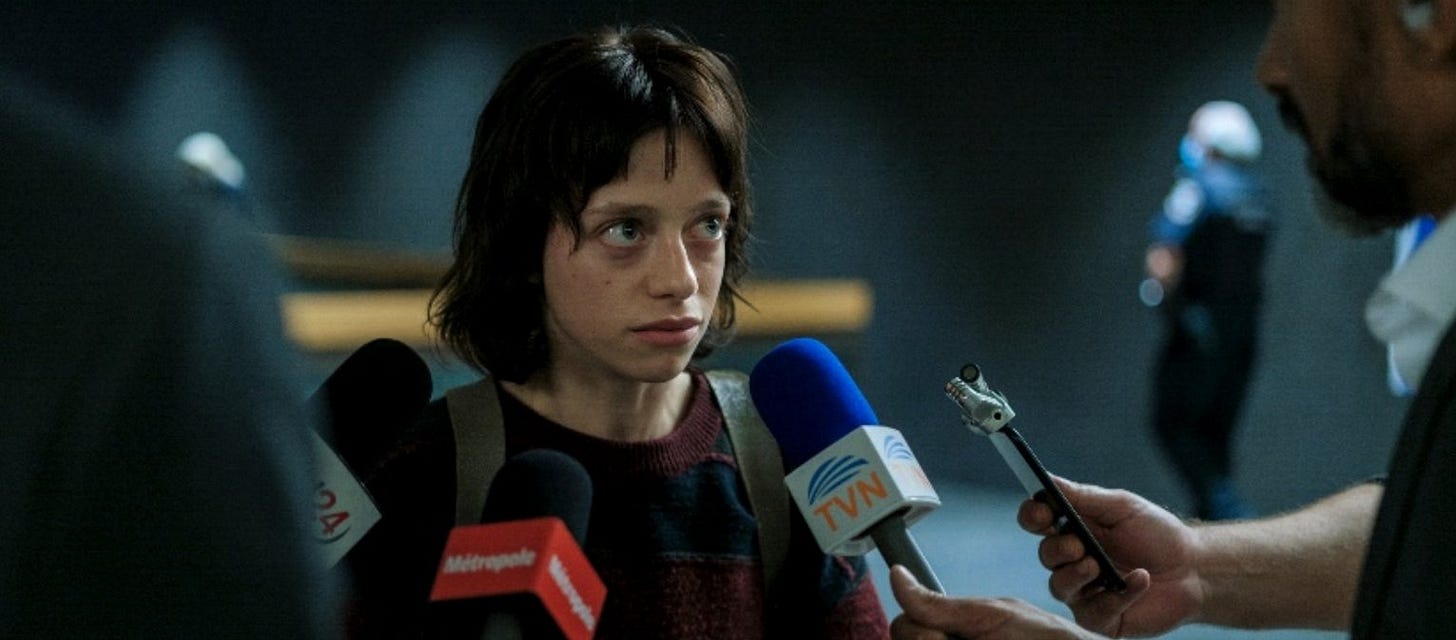
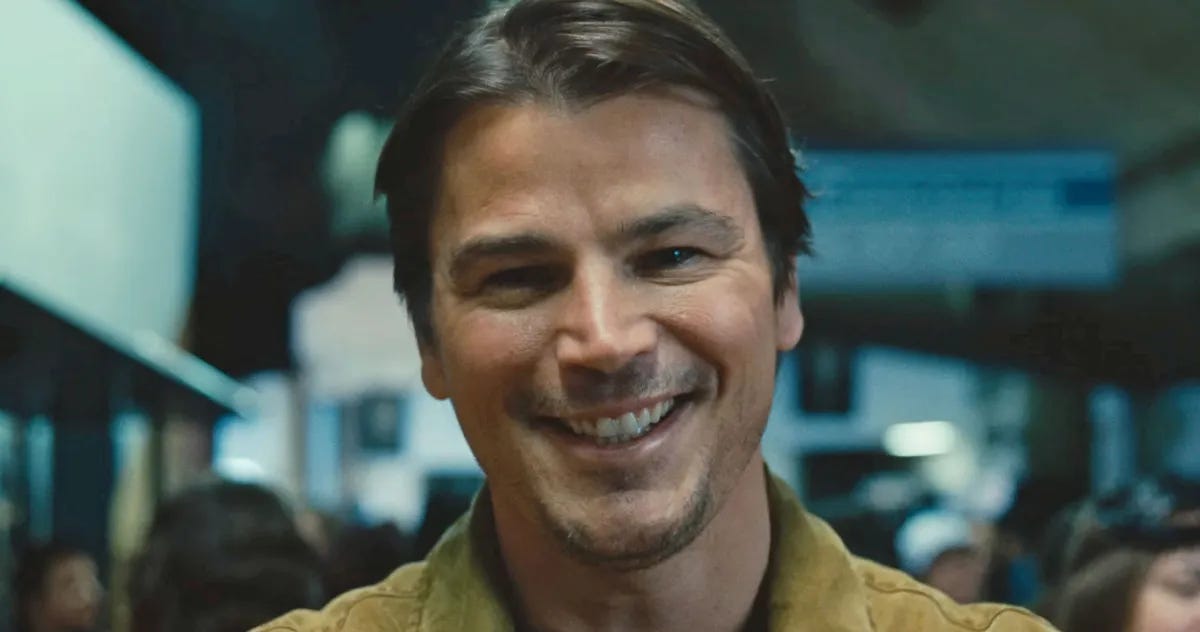
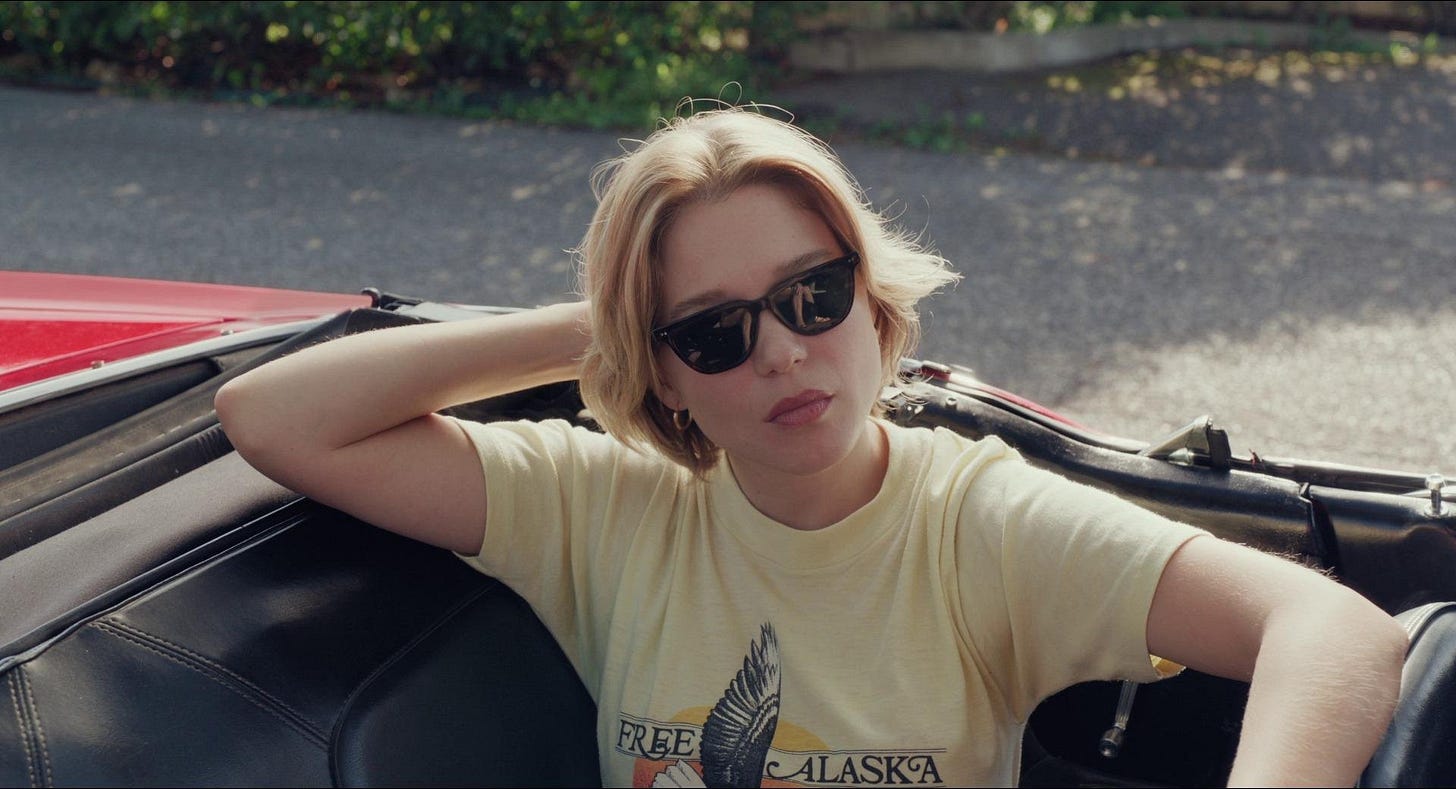
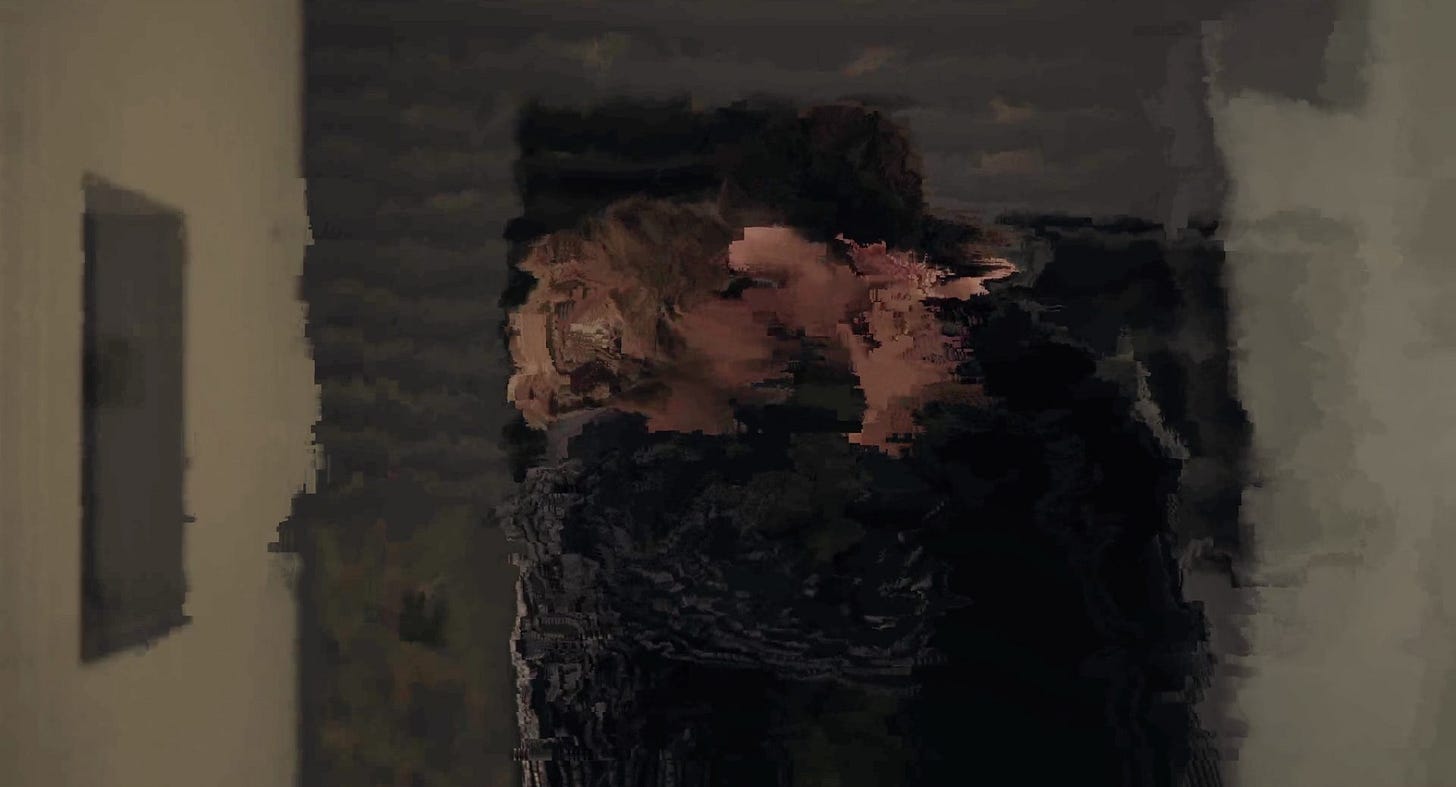
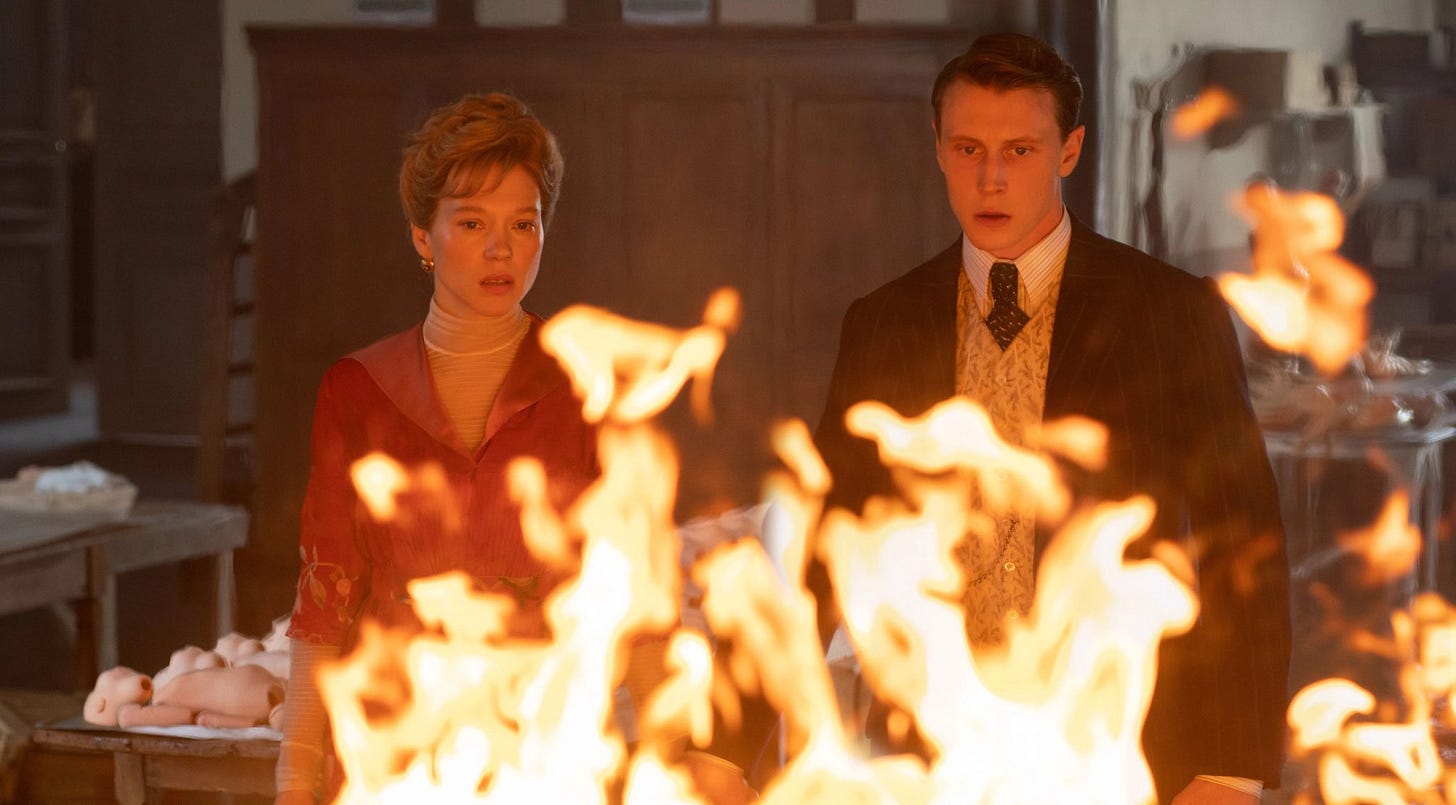

Are we getting a 2025 betters?